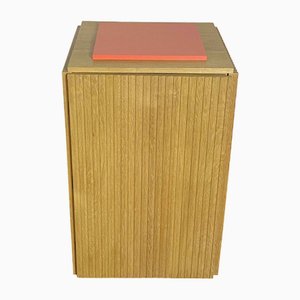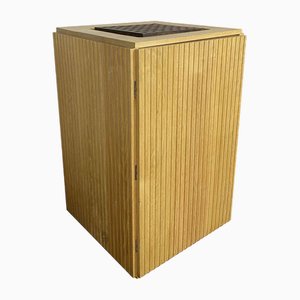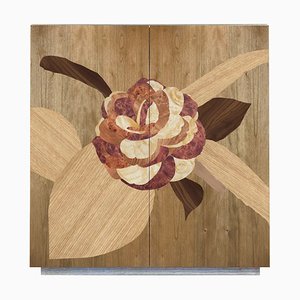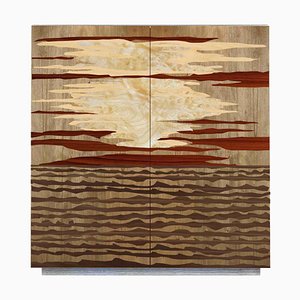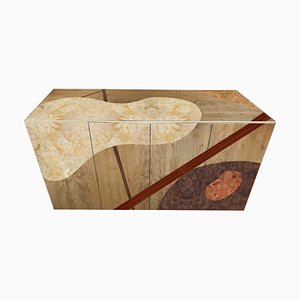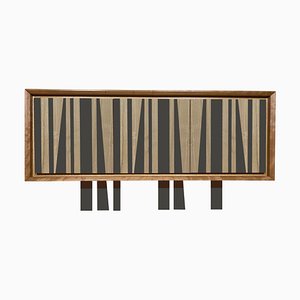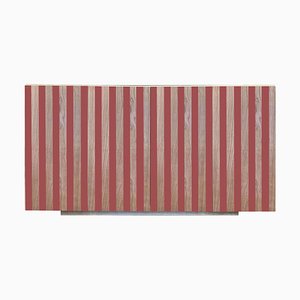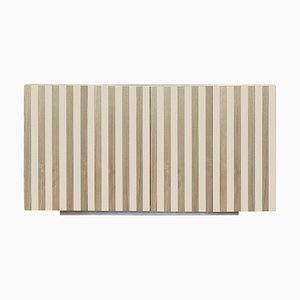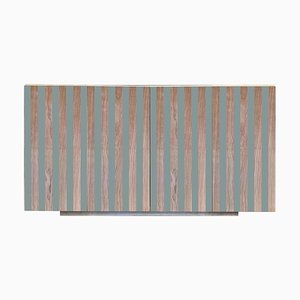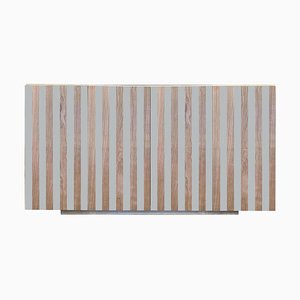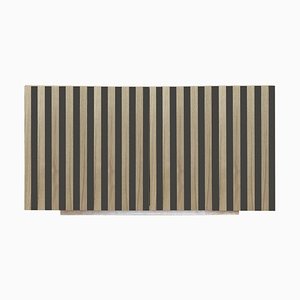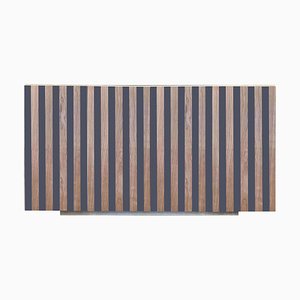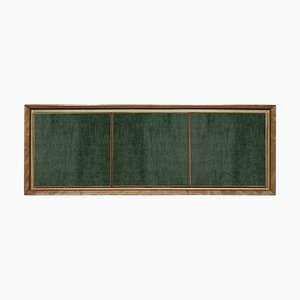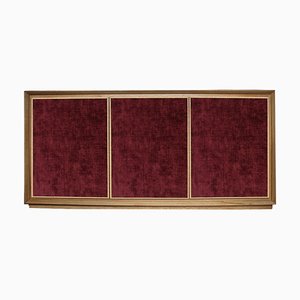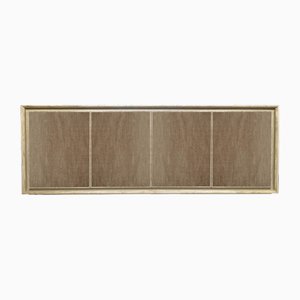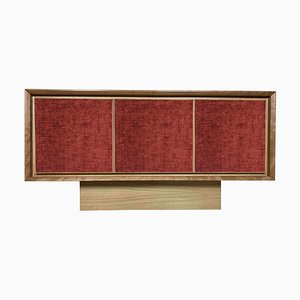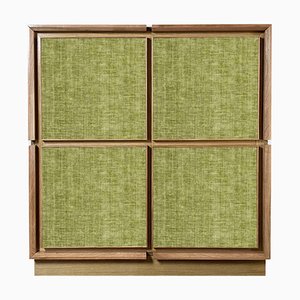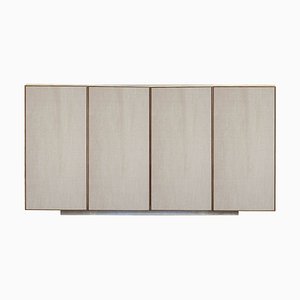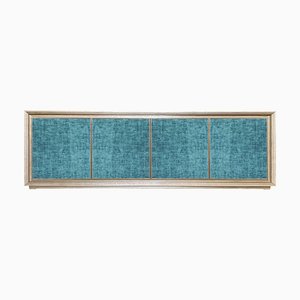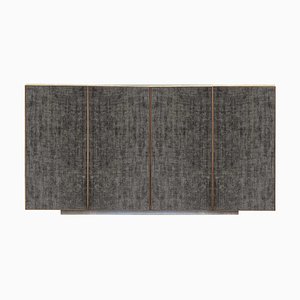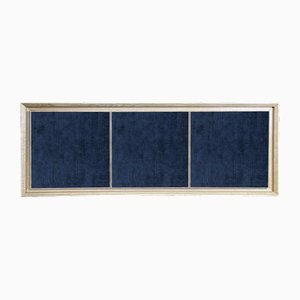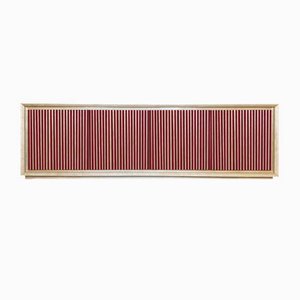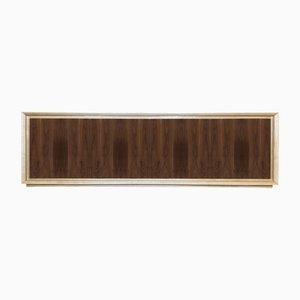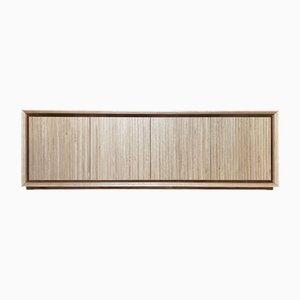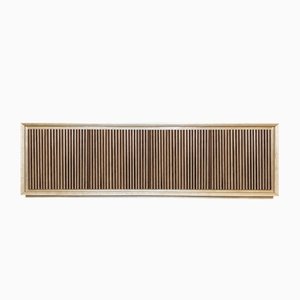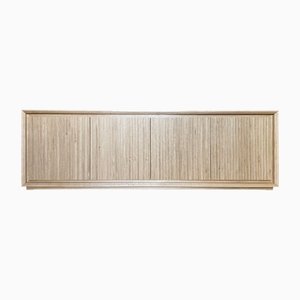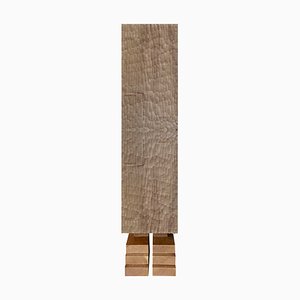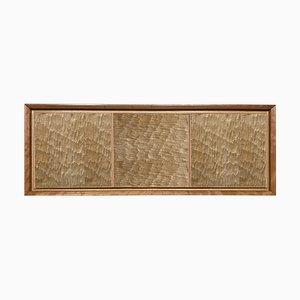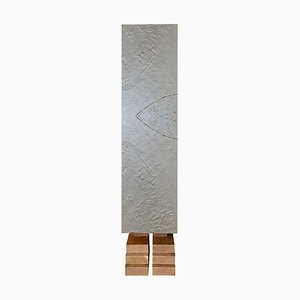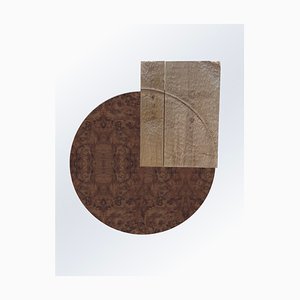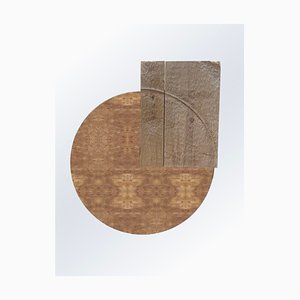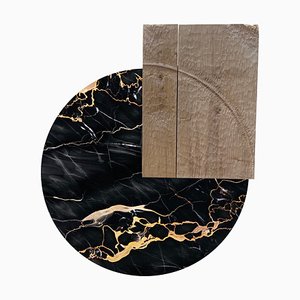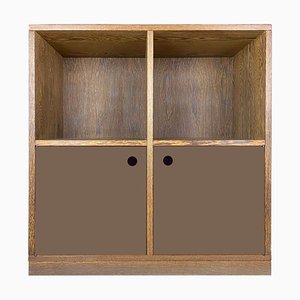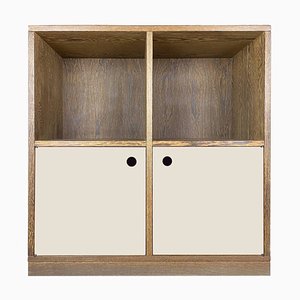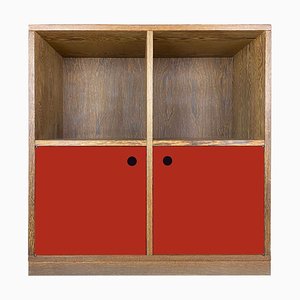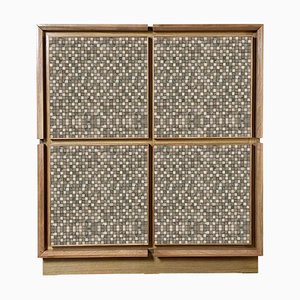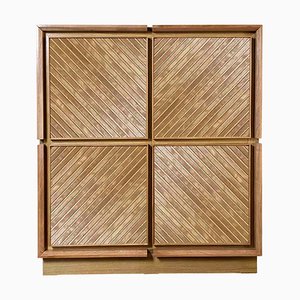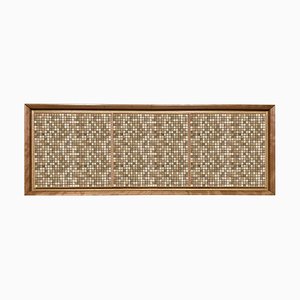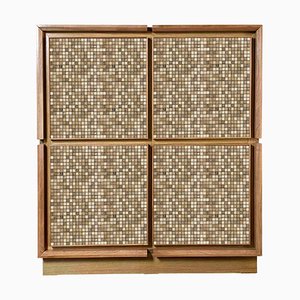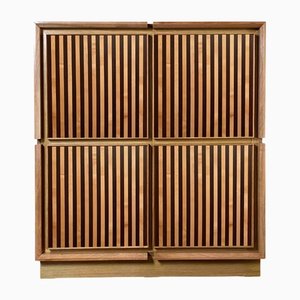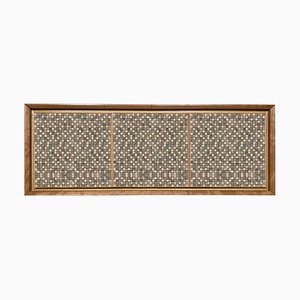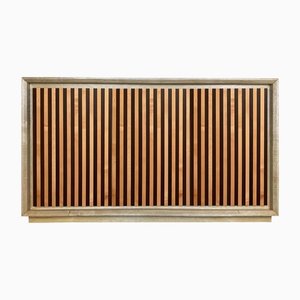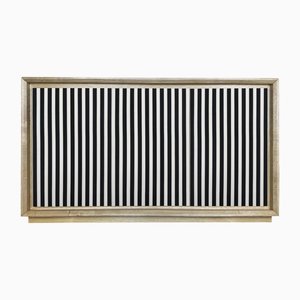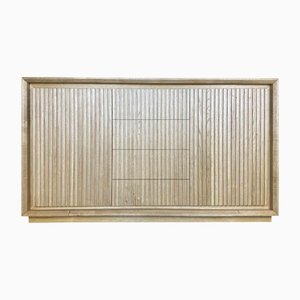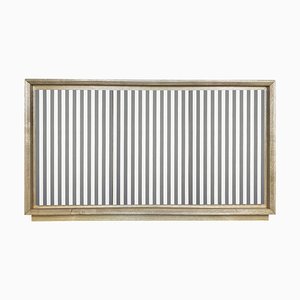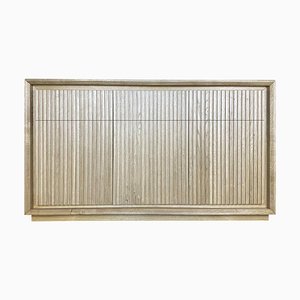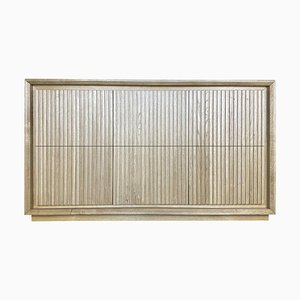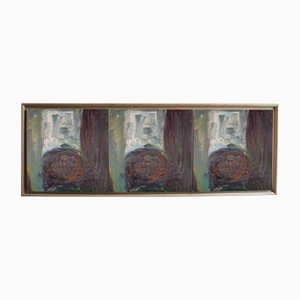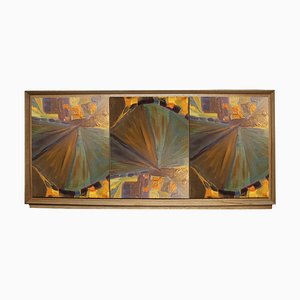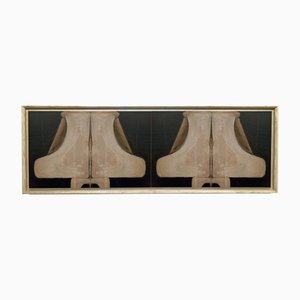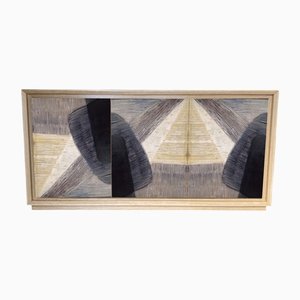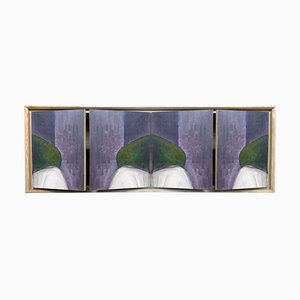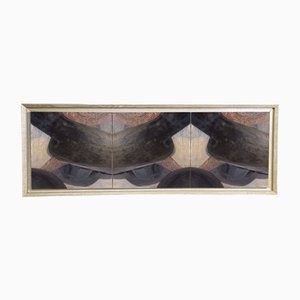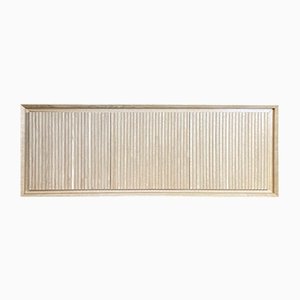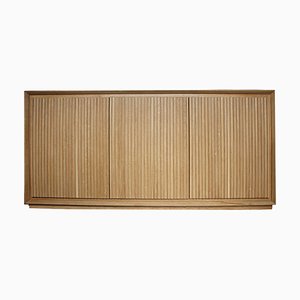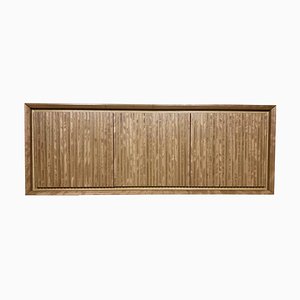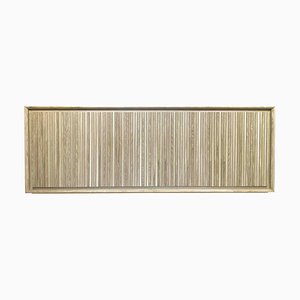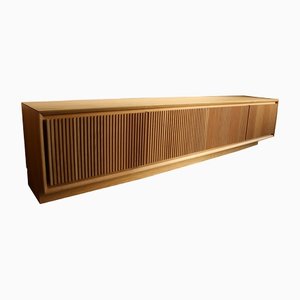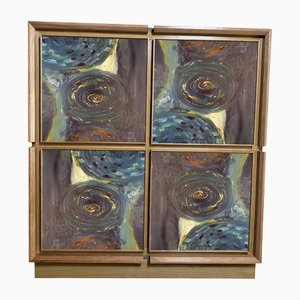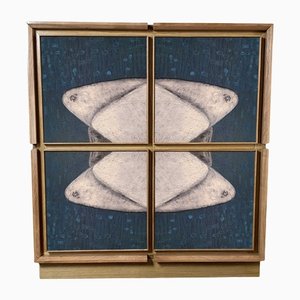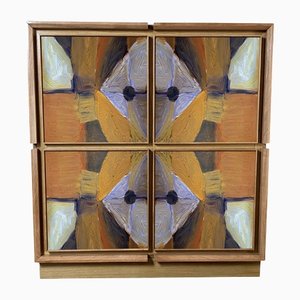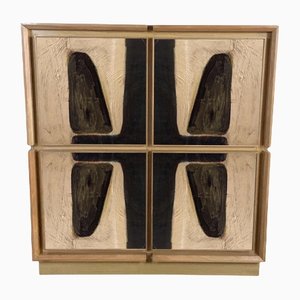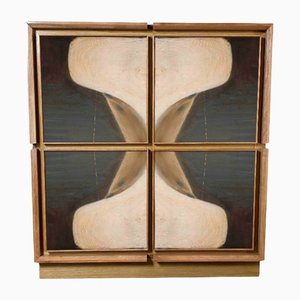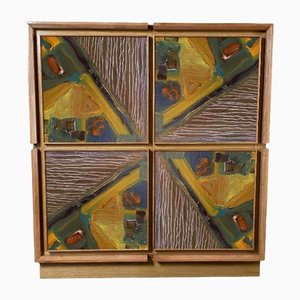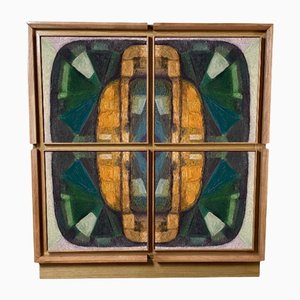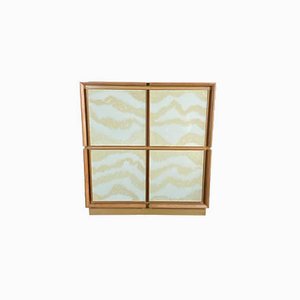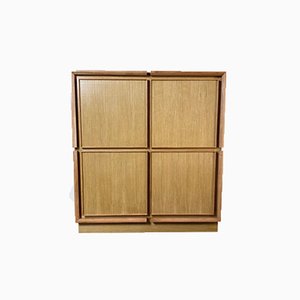
With a warm elegance, Meccani Design combines the elegant craft traditions of Tuscany with a keen environmentalist outlook.
Meccani Design is the outcome of three generations of craftsmanship. It was founded as a carpentry firm in Cascina (near Pisa) in the 1960s by two brothers, Marino and Giuseppe Meccani. When a son of the family, Ferdinando Meccani (1937–2018), returned from his training at the State Art Institute of Cascina and the Florence Institute of Art and Décor, he swiftly guided the company, through the 1970s, to an elegant and artistic approach to the design and manufacture of home furnishings. In the 1980s, the company collaborated with prominent artists and designers, including Ettore Sottsass, Michael Graves, Paolo Portoghesi, Ugo La Pietra, Adolfo Natalini, Masao Noguchi, and Lanfranco Benvenuti, along with custom-made furniture and restoration work for particular clients. In 2002, the third generation, Pietro and Mascia Meccani, joined the fold, with the establishment of Meccani Laboratory of Architecture and Furnishings. Devised as an in-house design studio, it combines traditional design and construction of interiors furnishings with a focus on architectural design.
With a strong emphasis on the physical and emotional values of wood, Meccani’s pieces give breath to the warmth and varied textures of the natural material. Throughout, attention is paid to the confident right-angles of 1970s design aesthetics; bookcases, low tables and storage pieces are presented in smooth geometries of elegantly ratioed squares and rectangles. This approach, which deftly masks the pieces’ joining mechanisms, showcases both the thoughtfully worked woods of pear, cherry, mahogany, and elm, and the company’s utilization of and respect for the detailed craft traditions of the Tuscan region. More recent designs retain this firm commitment to solid wooden form, combined with more organic approaches to visual and textural detail; the clean lines of coffee tables are splashed with vivid color, and trays and vases evoke the organic forms of tree-bark, roughly carved and weathered.
Meccani is conscious of the crucial symbiotic relationship between their source materials and their work; they seek to design and build using the most sustainable methods, and using the best natural, renewable and biocompatible materials. The company does not use wood from primary forests, but rather sources its timber from plantations, where there is a continuous balance between cutting and planting. The material purchased for manufacture is certified, and Meccani prides itself on its quality, which ensures its durability, and its liberation from passing trends. Paint and varnishing materials are also ecological, free from emissions harmful to the natural and living environment. Acrylic-only adhesives without formaldehyde are used during the processing, and the wood, if not lacquered, is treated only with impregnating wax based on oils, plant resins, and, as a finishing balm, beeswax and vegetable wax; these treatments make the furniture easy to both maintain and re-use.
With the knowledge and experience that arises from three generations of expertise, Meccani has been involved in a wide range of furnishing and design projects. This has included work for the Prada Group – including Prada, Jil Sander, and Fendi in Milan – and the furnishings of restaurants and hotels in Florence and Pisa. Meccani exhibited at 2018 Milan Design Week, and its work has been featured in a wide range of publications throughout its decades of operation, including Casa Vogue and Artribune.

